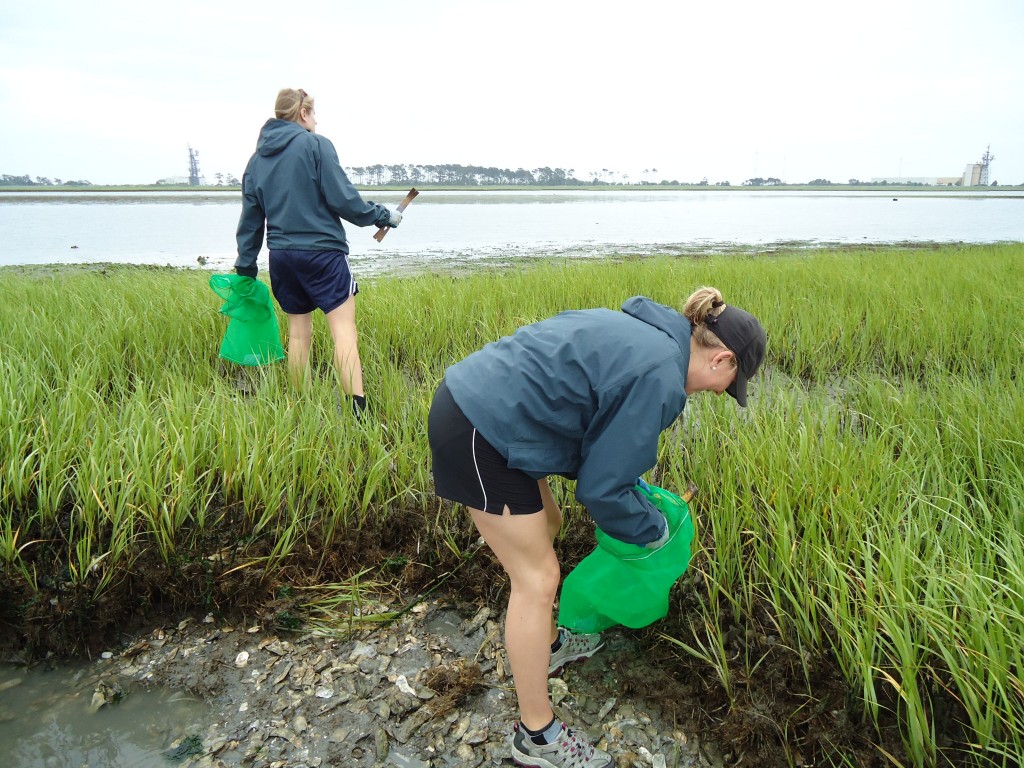by Katrina Lohan, Smithsonian postdoc

Kristy Hill and Michele Repetto hunt for oysters on an exposed marsh in Chincoteague Bay. (Katrina Lohan)
For our final sampling site, we headed north to Chincoteague Bay. Edward Smith, our boat captain, had made sure to find a location that wasn’t currently leased to a local fisherman. He was confident we would find oysters, but he wasn’t sure about mussels or clams.
For some additional manpower, three summer interns from the Eastern Shore Laboratory accompanied us. Our sampling location was adjacent to Wallops Island, a NASA facility. We got to work as soon as Edward stopped the boat. Edward and the interns started raking for clams, while the rest of us grabbed oysters and mussels from the exposed marsh.
The mud here was also thick and deep! Once we had all the oysters and mussels necessary, Kristy and Michele aided in the search for clams while I recorded all the necessary metadata and took sediment and water samples. When the tide started to come in we had to halt our sampling efforts. Though we didn’t find as many clams as we wanted, we had enough to make processing them worthwhile. It was a great time for our final collecting trip of the season!
View full series on hunting for oyster parasites >>

